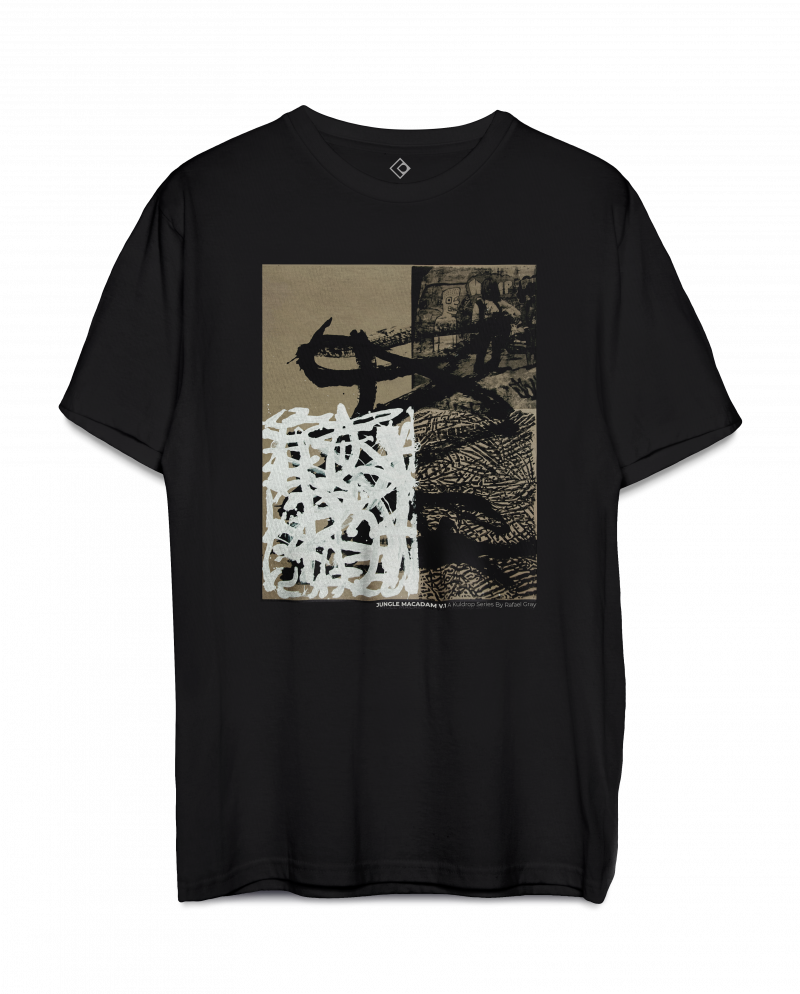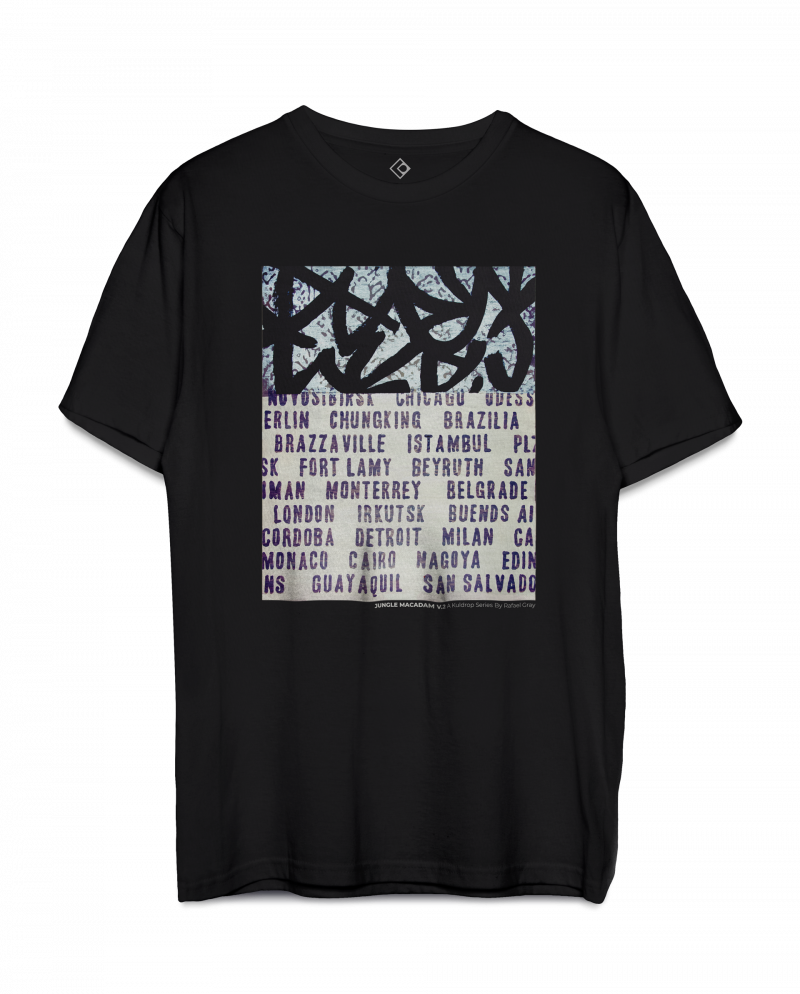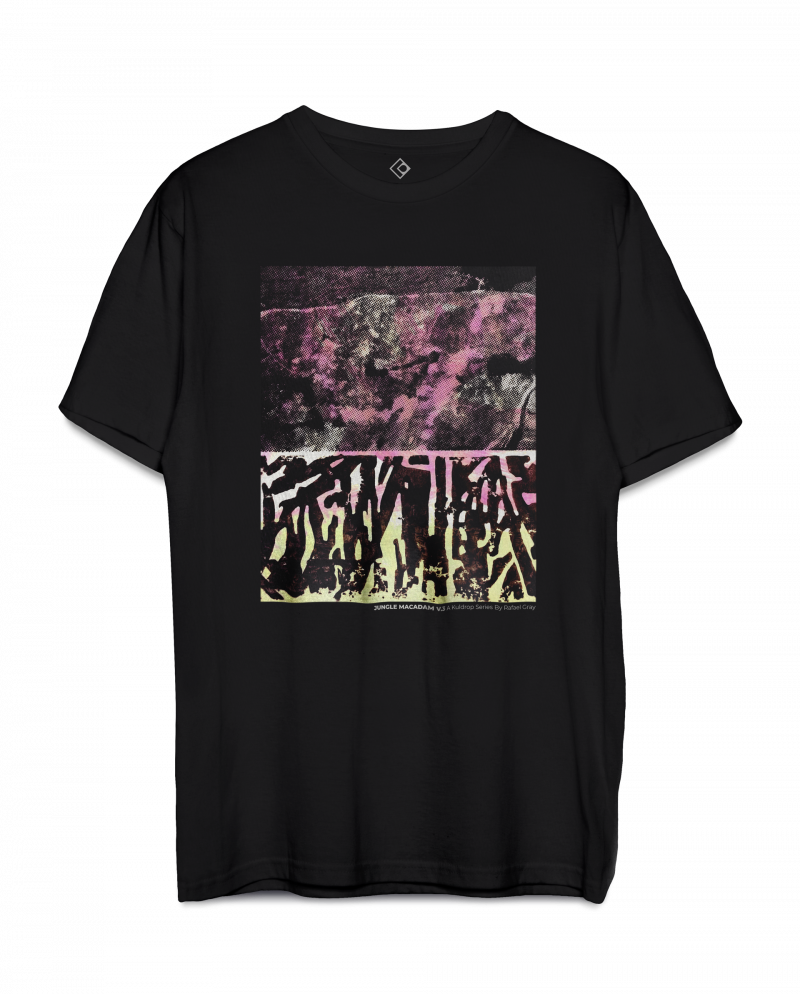From urban art to fine art, Rafael Gray is one of those artists with a very personal touch on street art and graffiti.
It was a long time ago when we first fell in love with his art, it was in a notebook filled with collages and colourful drawings. Rafael Gray was one of the artists that we’ve had in mind for a collaboration since we started this t-shirt gallery project. We caught up with him to make a street art t-shirt collection with some of his paintings that would reflect this spontaneity we found in his notebook. A few months later and without doubt his t-shirts are one of the most successful series in our gallery. Today, we would like to talk about his thoughts and work process. But first, some introduction.
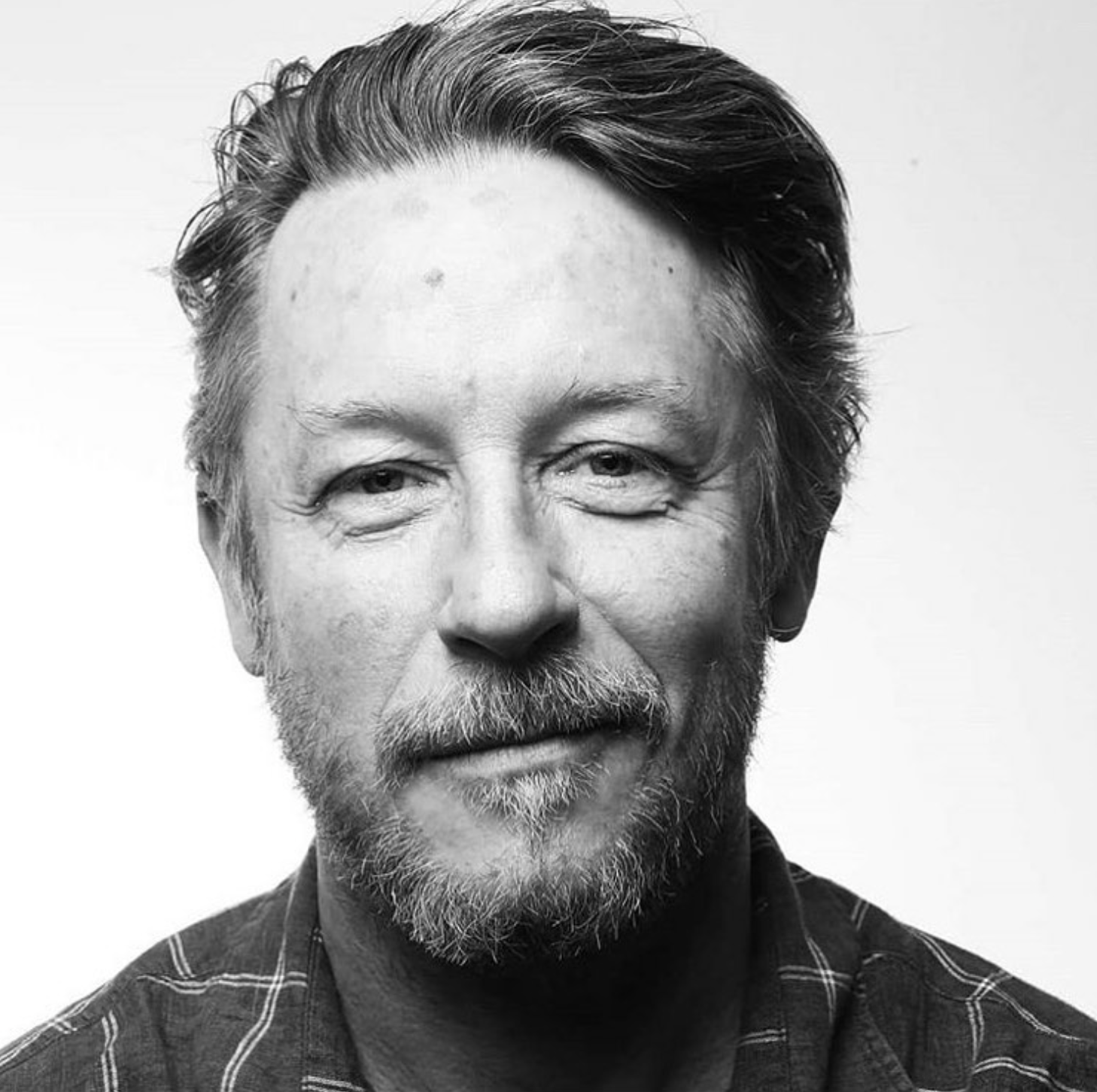
Rafael Gray became known in the early 80s through his work in the streets of Paris and New York (graffiti and posters). From his urban experiences, he keeps a spontaneous graphic gesture and a constant search for new spaces for his painting. Opposed to the fixity of the painting, he initiated in 1988 a nomadic work where the canvas leaves its support-frame, to travel around the world.
Setting in motion which he explores in parallel by a poetics between painting and cinema. Accumulating large series of images, it takes into account both the canvas and the screen. The images of the world seen through his travels, are juxtaposed with the images found (press photos, posters), are recycled, and reappropriated by the act of painting. Voluntarily chaotic, this process which links the tables like so many disordered photograms, is revealed in films which bring together the sequences and the diversity in the same progression.
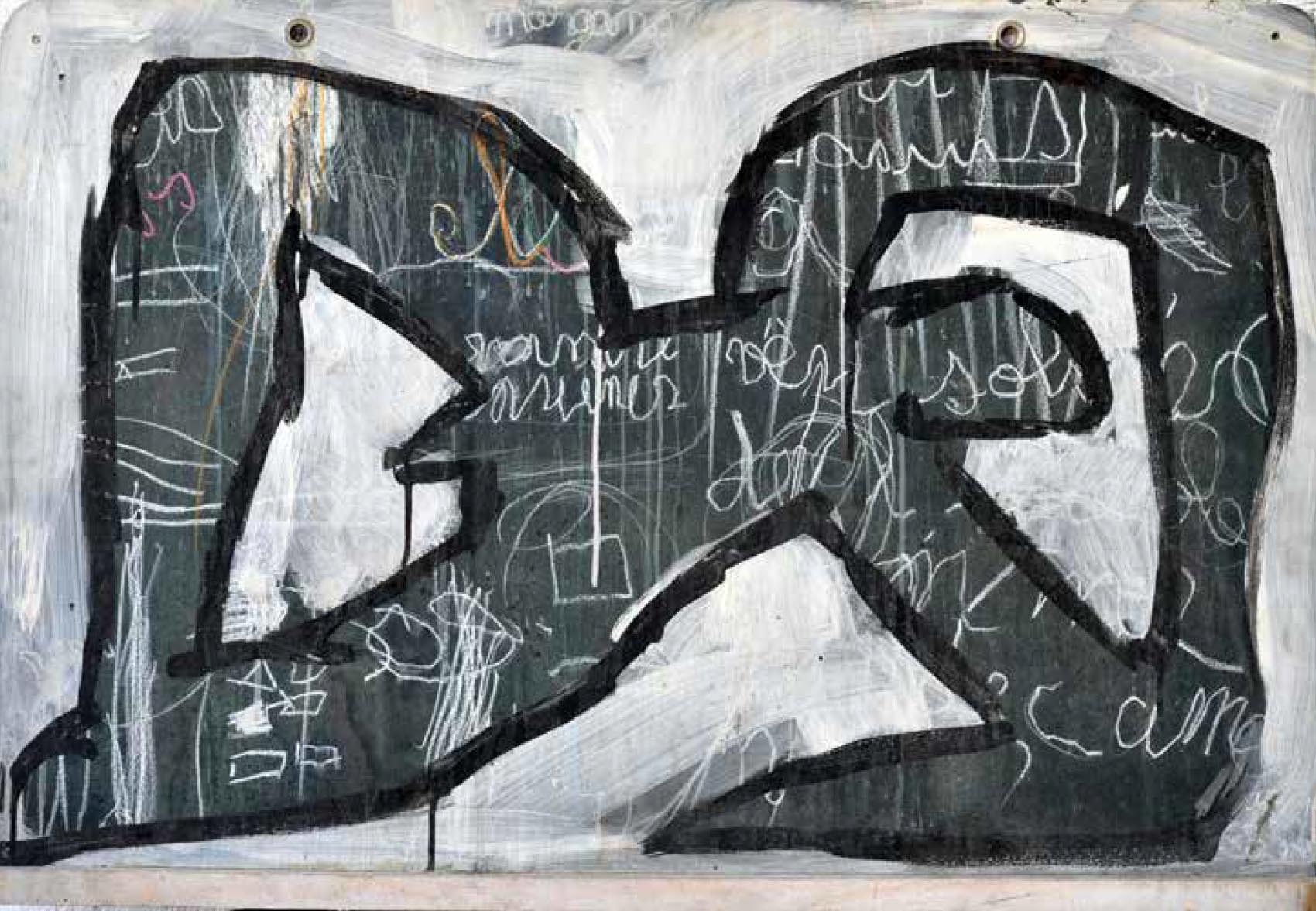
there is a tendency that creating ugliness is cool but I believe in the opposite: going for beauty is what is needed.
Can you tell us about your work process?
I proceed mostly by improvisation. For that, I have ways of giving myself material boundaries that help free creativity. Working, doing, acting—the creative process is what matters. But sometimes an image or an idea imposes itself on my conscience. When this happens, I try to brush it aside as if it was not important, but if it comes back insisting… I use it and push it hard to see where it wants to take me.
What is the hardest part of creating an art piece?
Starting and finishing…
Most difficult: staying free.
What do you think about art and design tendencies nowadays?
Today all is possible, which can be good, but in another way, you have to take a lot of crap. There are so many pictures circulating and very little education to understand them. Everyone can be an artist, but it is not everyone has the discipline it requires.
Somehow there is a tendency that creating ugliness is cool, but I believe in the opposite: going for beauty is what is needed.
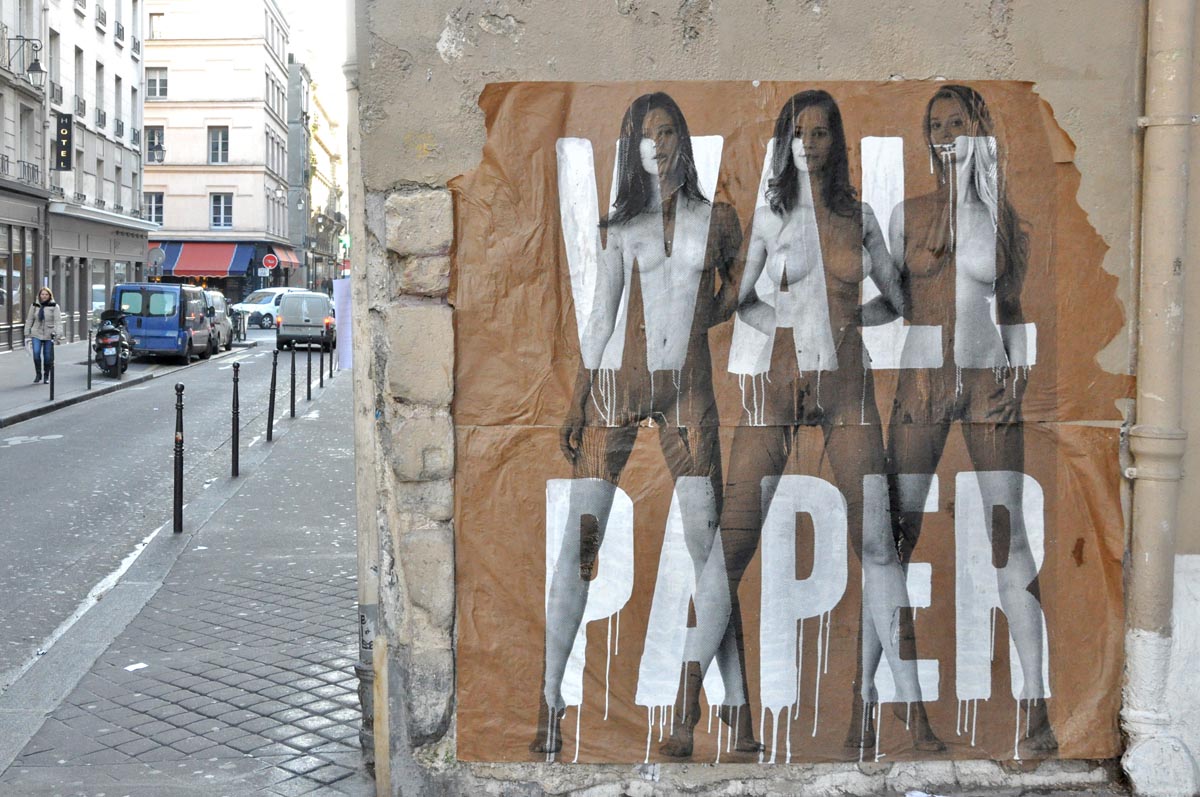
The problem I encounter often is the lack of visibility some art or social events have.
You were recently involved in an outdoor exhibition. What was it about and what will be your next move?
Yes. I recently curated a group-show called “L’Exposition Invisible” in an old concentration camp hidden from the public’s eye. I called artists to participate, saying the action was illegal and that no one would see the show. Surprisingly, more than 40 artists responded to the call, and the show was a success.
The problem I encounter often is the lack of visibility some art or social events have. Being visible is a political issue. What has visibility and what doesn’t? Who has the power to give visibility? Visibility is changing with new media like Instagram, but the mainstream still fiercely dominates.
I think the next move is acting on helping our planet. This idea has always been my main preoccupation. You see today ecology is visibly mainstream… but who really does anything about it?
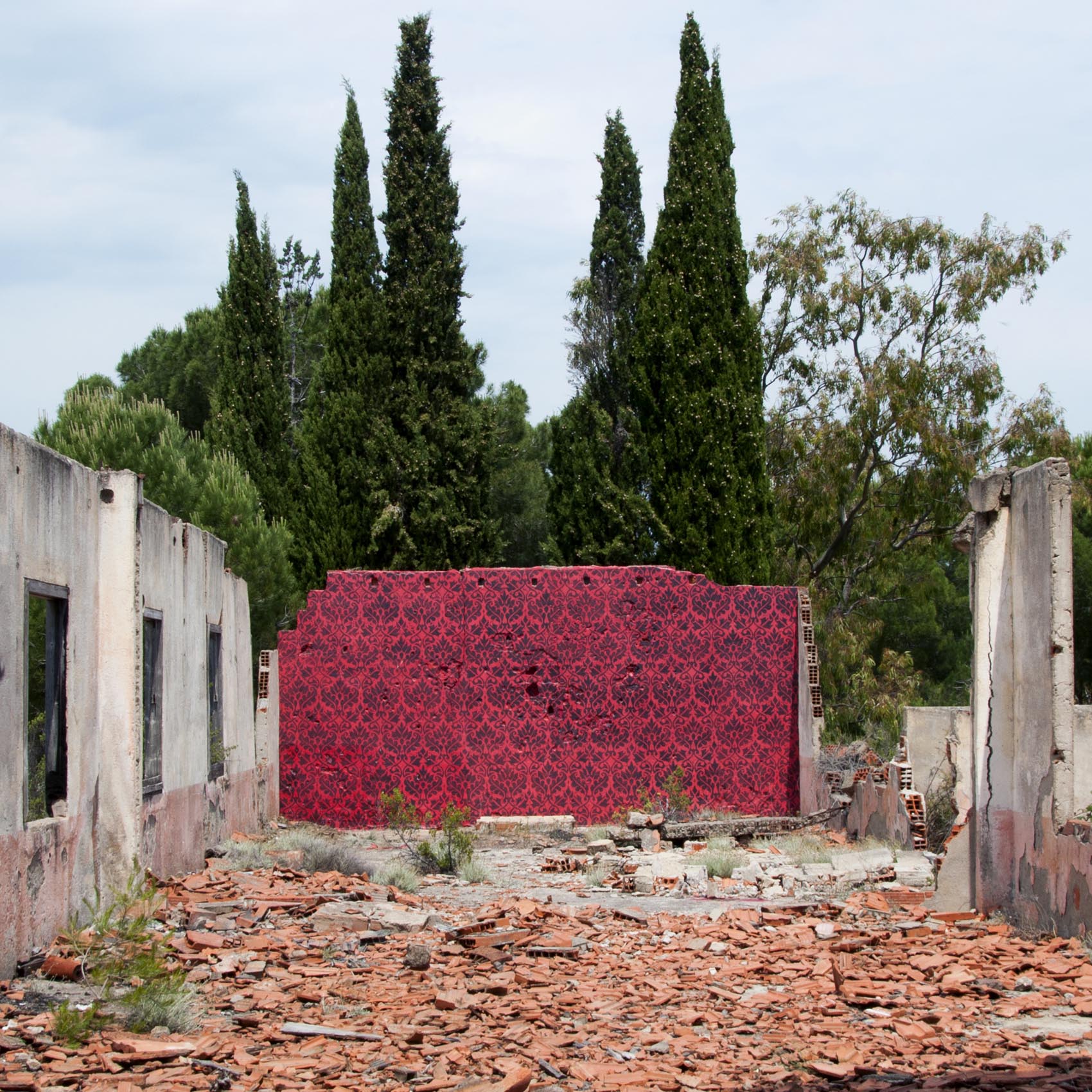
What is your own definition of concept?
A concept is an idea that canalises a force, an action in relation to an opinion. For me, it is not something that I use as an inspiration, not an idea that I want to redefine, explain or illustrate. It is more like the result of an action. The result of who you are, so sometimes it is a starting point. You can’t just show pictures of how humans fuck-up nature—you have to take action, change the way of living, change the way of thinking.
Rafael Gray collection
-
Jungle macadam V.1
€29,95 View Details -
Jungle macadam V.2
€29,95 View Details -
Jungle macadam V.3
€19,45 – €29,95 View Details

